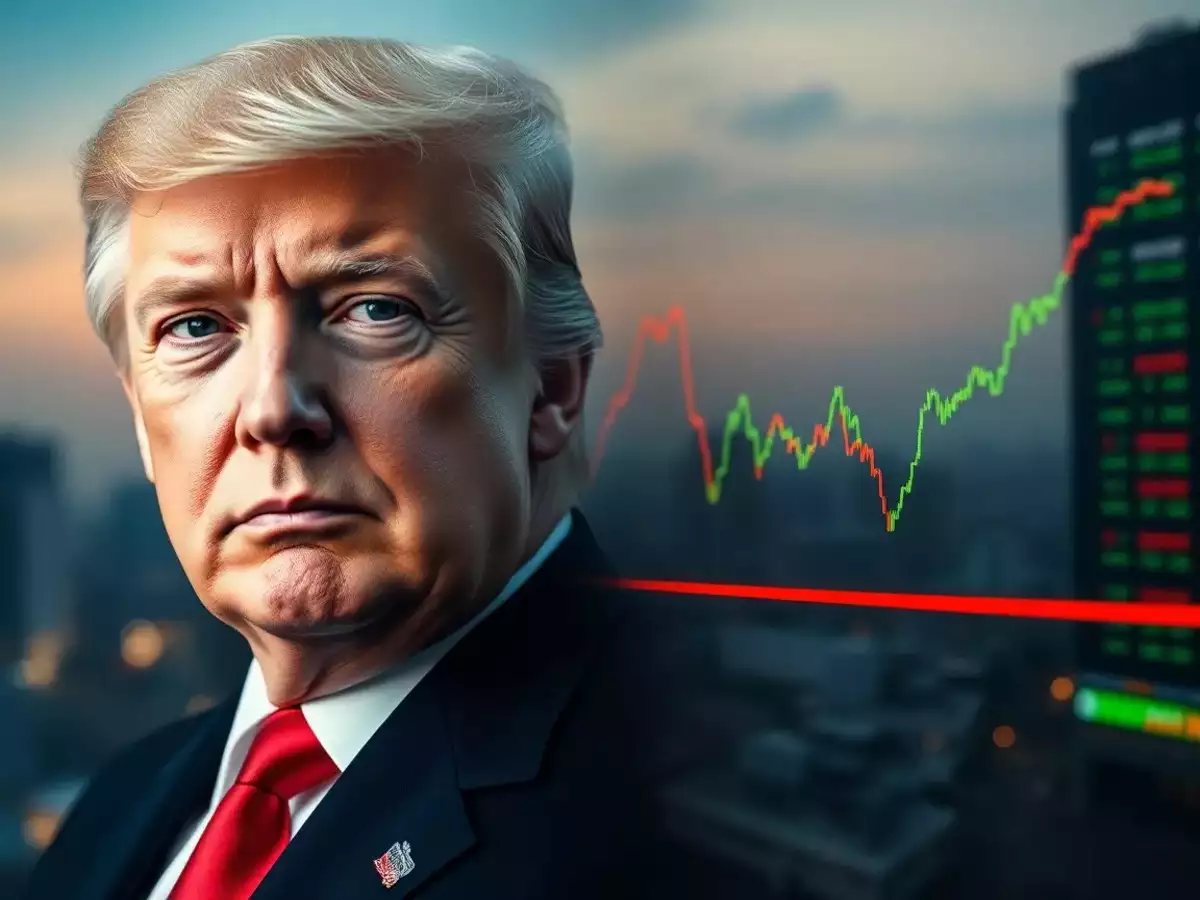Sensex crashes 1,300 points as Trump 2.0 spooks investors. 3 things to know

Stock market crash: The Sensex tumbled 1,300 points to 75,773 at around 2:45 pm, while the Nifty50 fell below 23,000. All other broader market indices also collapsed during the trading session.

A volatile session on Dalal Street turned into a nightmare for stock market investors. After swinging between gains and losses for most of the trading day, the benchmark indices crashed.
The Sensex tumbled 1,300 points to 75,773 at around 2:45 pm, while the Nifty50 fell below 23,000. All other broader market indices also collapsed during the trading session.
The main reason behind the stock market crash was uncertainty over US President Donald Trump’s tariff plan after he returned to the White House for his second term.
Here are all the factors that led to today’s bloodbath on Dalal Street:
TRUMP TARIFF UNCERTAINTY
As mentioned earlier, the uncertainty over Donald Trump’s tariff plan triggered panic among investors. In an earlier article, we explained how tariffplans’ unpredictabilitys has led to higher volatility on Dalal Street.
Vinod Nair, Head of Research, Geojit Financial Services, said, “Domestic markets experienced a significant decline today, with heightened volatility, followed by Trump’s announcement of trade tariffs on neighbouring countries on his inauguration day, adding uncertainty into global markets.”
Prashanth Tapse, Senior VP (Research), Mehta Equities Ltd, added that markets were already on a cautious mode in the past few sessions, but witnessed “frenzied selling on Tuesday as investors now fear that Trump’s inaugural speech to safeguard America’s interest could hurt economic prospects of many countries, including India”.
HEAVYWEIGHT STOCKS DECLINE
Major stocks across several sectors fell sharply during the trading session, leading to today’s downturn. Zomato was on course to register an 11% decline and was the top loser on the Bombay Stock Exchange (BSE). Other heavyweight stocks, such as ICICI Bank, HDFC Bank, Reliance and SBI, also tumbled sharply during the session.
“The realty sector was hit the hardest due to weak pre-result updates, while banks suffered due to rising asset quality stress. Additionally, the expectation of an interest rate hike by BoJ is dampening market sentiment,” Nair added.
Q3 RESULTS FAIL TO IMPRESS
The majority of companies that have reported their Q3 results have either failed to meet expectations or barely scraped through. Only a handful of companies have managed to defy expectations. A Bloomberg consensus estimate has indicated that the earnings per share (EPS) of Nifty50 companies may grow by just 3% year-on-year in the third quarter. Only the capital goods, healthcare, and telecom sectors are likely to register double-digit profit growth.
VOLATILITY SKYROCKETS
Volatility also spiked during the session due to the prevailing sentiments among Dalal Street investors. Investors remain worried about the impact of Trump’s delayed tariff announcements, which could lead to a prolonged period of uncertainty for them.
Had Trump executed his tariff plans, it could have clarified for investors which sectors would be hit. However, experts say the ambiguity surrounding Trump’s tariff plan will force investors to “wait and watch” for a longer period, which could lead to more volatility on Dalal Street.
FII SELLING CONTINUES
The above factors have just made the situation worse on Dalal Street, given that it is already facing an exodus of foreign institutional investors (FIIs). As of January 20, FIIs have pulled out equity holdings worth over Rs 48,000 crore. In an uncertain market, FII selling could intensify and hit domestic stock market investors harder.
“While foreign investors continue to offload domestic shares at will, any further rise in US bond yields could trigger massive selling,” Tapse added.




